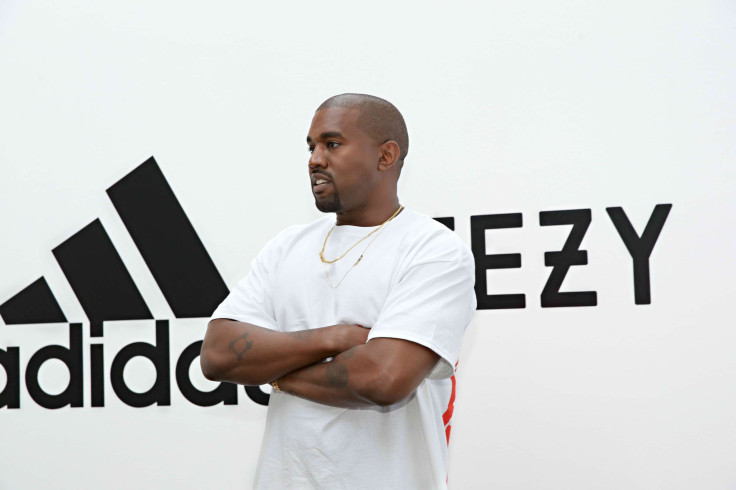Kanye West, Adidas Deal Termination Led To Layoffs: 142 Lost Their Jobs

KEY POINTS
- Adidas terminated its partnership with Kanye West last month following the rapper's controversial remarks
- The company responsible for making the Yeezy Foam Runner has laid off 142 workers since the announcement
- Officials at Okabashi Brands agreed with Adidas' decision to end its partnership with West
Adidas' decision to terminate its partnership with Kanye West following the rapper's anti-Semitic remarks cost more than a hundred people their jobs, according to a report.
Adidas announced last month that it decided to "stop the Adidas Yeezy business with immediate effect" in a move it estimated will impact its bottom line by up to €250 million ($246 million) this year alone. The company said it will no longer produce Yeezy-branded products and will cancel all payments to West's companies.
Since the announcement, Okabashi Brands, a Georgia-based manufacturing plant that has been making the Yeezy Foam Runner since April 2020, has laid off 142 workers, or two-thirds of its workforce, the Atlanta Journal-Constitution (AJC) reported.
Officials at Okabashi Brands said they agree with the German company's decision to end its partnership with the 45-year-old rapper, but they lamented the massive repercussions on the company's workforce.
"Adidas clearly does not tolerate hate speech and Okabashi also stands for these values," Okabashi said in a statement to AJC. "Unfortunately, this means Okabashi has to stop its current production for Adidas. As of right now, there are not enough orders to keep all employees busy with work."
The company also said it is currently coordinating with local governments and other companies to help their former employees find new jobs. Workers who were laid off will also receive severance and extended healthcare coverage, according to Okabashi.
The job cuts came months after Okabashi announced in June plans to invest $20 million and create 340 new jobs over the next five years as it renovates and expands its Buford production plant.
At the time, the company said in a statement obtained by AJC that it would "continue production of its own branded products and is pursuing other partnership opportunities to leverage its domestic manufacturing capacity and know-how."
The family-run and women-led company was established by an Iranian immigrant in 1984 and has sold more than 35 million pairs of shoes since then. The company's brands include Okabashi, Oka-B and Third Oak, which are sold at retail stores and online, as well to major manufacturing customers.
Adidas decided to cut ties with West and end their seven-year partnership following the series of anti-Semitic comments the rapper made online and in interviews last month.
"Adidas does not tolerate antisemitism and any other sort of hate speech. Ye's recent comments and actions have been unacceptable, hateful, and dangerous, and they violate the company's values of diversity and inclusion, mutual respect, and fairness," the company said in a statement released on Oct. 25.
Adidas began producing Yeezy footwear and apparel in partnership with West, who now goes by Ye, back in 2015. The brand eventually became one of the company's most valuable product lines, with some estimates saying it garnered $2 billion in revenue a year for Adidas.
Other business partners that have since severed ties with West include Balenciaga, Gap, JPMorgan Chase and Vogue.
But the loss of his Adidas deal was the biggest financial blow for West as it cost him his billionaire status. His net worth reportedly shrunk by an estimated $1.5 billion following the termination of the partnership, according to Forbes.
The magazine estimated that West's net worth now stands at $400 million.

© Copyright IBTimes 2025. All rights reserved.






















